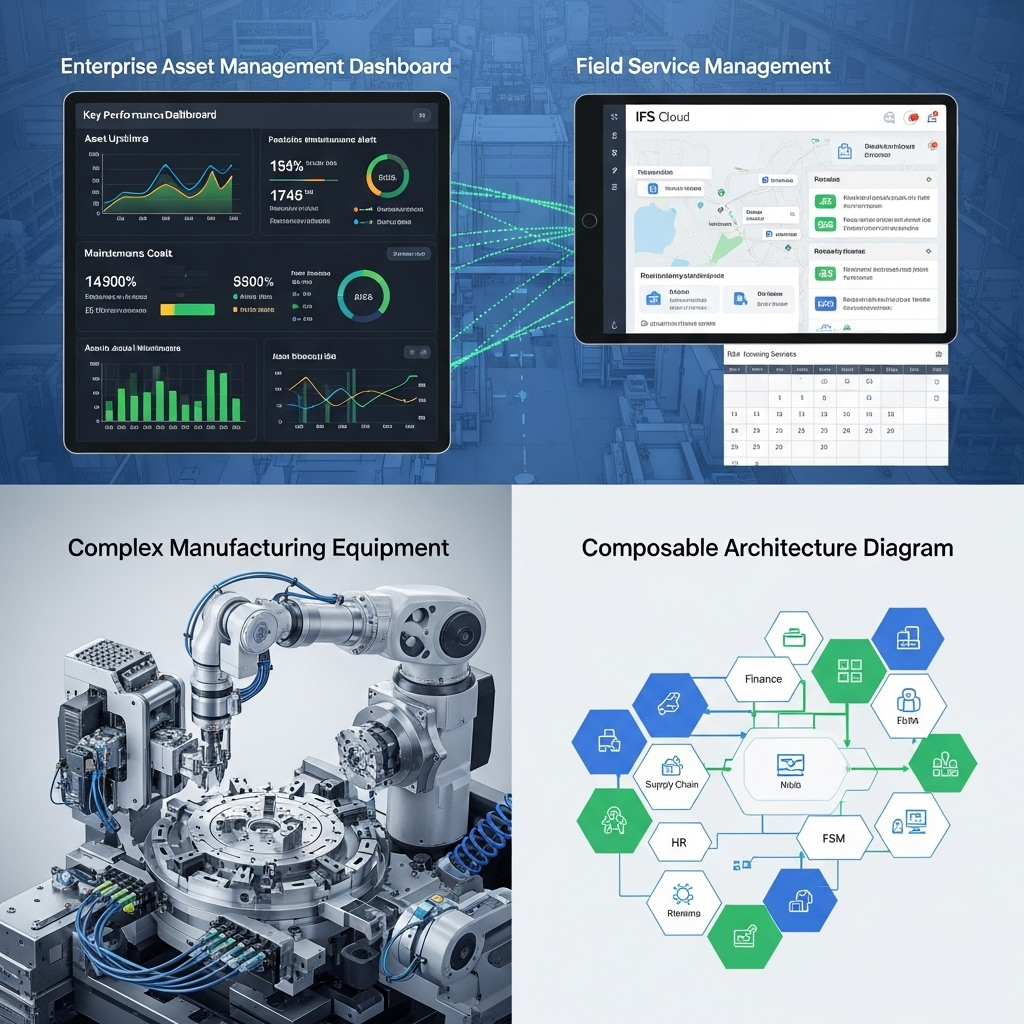
Table of Contents
When we discuss Enterprise Resource Planning, the conversation often centers on systems designed for professional services, retail, or general financial management. It’s a world defined by balance sheets, sales orders, and human capital. But what about the industries where the most critical assets aren’t people or financial instruments, but massive, complex physical equipment?
While many focus on the big-name ERPs that dominate office-based industries, my research suggests a whole other tier of powerful systems architected for the physical world. A perspective forged through years of observing complex system deployments highlights a crucial player in this space: IFS. Their platform, IFS Cloud, is a fascinating example of an ERP built with a fundamentally different core. It’s not an add-on module for asset management; the entire system is steeped in the language of assets, projects, and service.
This isn’t just a minor distinction. For companies in manufacturing, energy, aerospace, or construction, this focus is everything. Their business isn’t just about selling a product; it’s about manufacturing it, deploying it, maintaining it over a decades-long lifecycle, and servicing it in the field. This requires a deeply integrated view that many general-purpose ERPs, like those we discussed in our introduction to ERP systems, can struggle to provide out of the box.
A Composable Architecture for Physical Assets
What makes IFS Cloud particularly noteworthy from an architectural standpoint is its composable design. It’s built as a single platform, but its capabilities can be deployed in a modular fashion, allowing companies to adopt what they need, when they need it. This is a far cry from the monolithic, rip-and-replace approach of older systems.
The core strengths of the platform are tightly interwoven:
- Enterprise Asset Management (EAM): This goes far beyond a simple fixed asset register. It’s about managing the entire lifecycle of complex equipment, from engineering and procurement to maintenance schedules and eventual decommissioning.
- Field Service Management (FSM): IFS is consistently recognized as a leader here. The platform manages the entire service lifecycle, from dispatching technicians and managing parts inventory to handling complex service contracts and billing.
- Enterprise Project Management (ERP): Many asset-intensive operations are project-based. IFS integrates project management directly into its core, linking costs, schedules, and resources from the initial bid to the final delivery.
The Strategic Advantage of a Single Data Model
This tight integration creates a powerful feedback loop. Data from a field service visit can inform the maintenance schedule in the EAM module, which in turn impacts the project plan and financial forecasts. This is all possible because of a single, unified data model. Unlike systems where different modules are acquired and bolted together, IFS Cloud was designed from the ground up to have one version of the truth.
This has profound implications. It means that a change in one area of the business is instantly visible in all others. It eliminates the need for costly and fragile custom integrations between modules. And it provides a truly holistic view of the business, from the initial customer contact to the final service visit and financial reconciliation. This is the holy grail of enterprise software, and for asset-intensive industries, it’s a critical competitive advantage.
Industry-Specific Value Drivers and Use Cases
The Future of Industrial ERP
Looking ahead, the future of industrial ERP is all about intelligence. The next wave of innovation will come from embedding AI and machine learning into the core of these platforms. Imagine a system that can predict when a piece of equipment is likely to fail and automatically schedule a maintenance visit. Or one that can optimize the dispatch of field service technicians based on real-time traffic and weather data.
This is where platforms like IFS Cloud are headed. By leveraging their deep domain expertise and rich data sets, they are poised to deliver the next generation of intelligent industrial automation. For organizations where physical assets and services are the lifeblood of the business, IFS Cloud offers a compelling and specialized value proposition.
Feel free to connect with me on LinkedIn to share your own experiences.